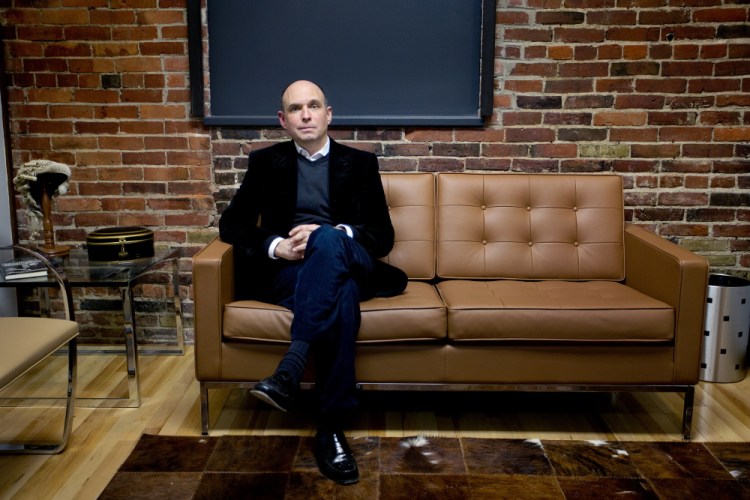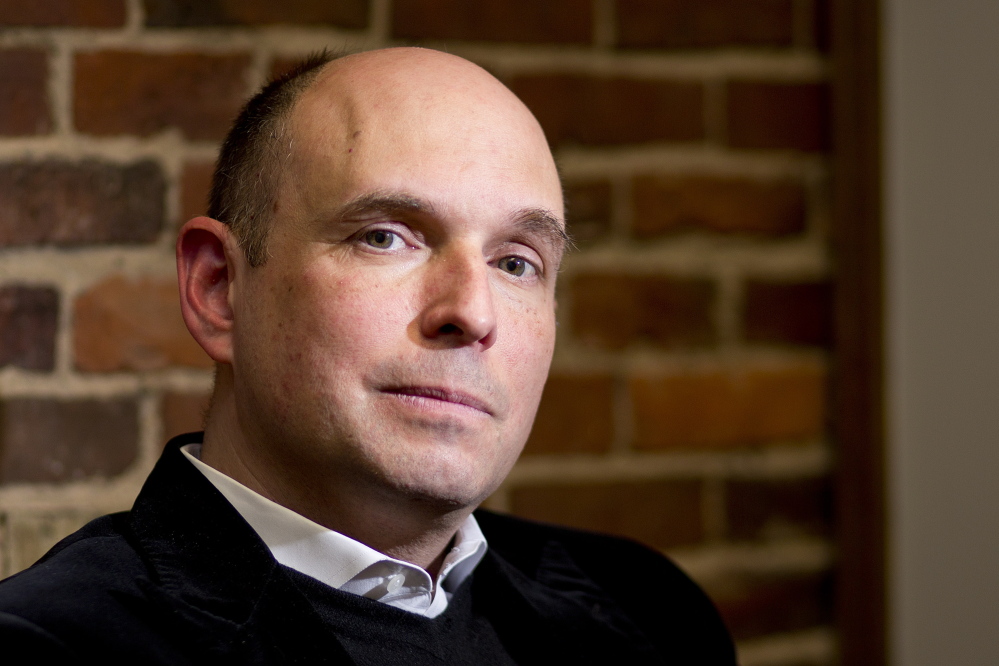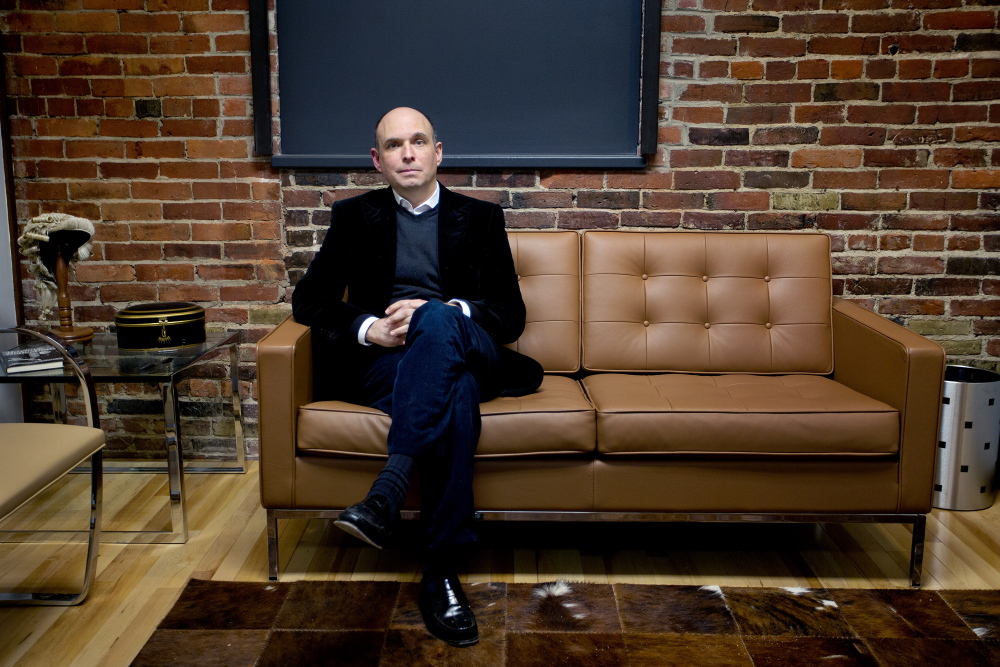A Portland attorney who specializes in international law filed a $1 billion lawsuit this week in Maryland against Johns Hopkins University and the Rockefeller Foundation, accusing their researchers of carrying out government experiments in Guatemala from 1945 to 1956 to intentionally infect residents with sexually transmitted diseases.
Attorney F.R. Jenkins, owner of Meridian 361 International Law Group in Portland, said the institutions are supposed to be dedicated to protecting public health but instead created a “public health nightmare” in Guatemala, exposing vulnerable populations to syphilis and gonorrhea so the doctors could attempt to treat some and leave others untreated to observe what happened to them.
Jenkins is leading a team of attorneys in Portland, Maryland and Venezuela that filed the suit Wednesday on behalf of 774 Guatemala residents, including 115 they say died from complications after being infected with diseases, and their spouses, children and grandchildren.
The lawsuit seeks to hold Johns Hopkins and the Rockefeller Foundation responsible for hiring the scientists who carried out the experiments using federal funding. The lawsuit also names drug maker Bristol-Myers Squibb as a defendant for its role supplying the penicillin used in the experimental treatments.
The lawsuit accuses the defendants of 10 counts ranging from failure to get consent from the subjects of the Guatemalan experiments to wrongful deaths of the 115 who died of complications. An attachment to the lawsuit names all 774 plaintiffs and identifies them as direct victims or relatives.
The Guatemalan experiments were not made public until 2010, when President Obama called the president of Guatemala to apologize for them. Obama created a commission to study the experiments and it issued a report in 2011, concluding the researchers had committed “egregious moral wrongs.”
A QUESTION OF LIABILITY
The lawsuit filed by Jenkins’ group differs from a lawsuit filed in 2011 on behalf of another group of Guatemalan victims that sought to hold the federal government responsible for funding the experiments. The 2011 lawsuit in federal court in Washington, D.C., was dismissed in 2012 after a judge found the United States immune for actions it committed in other countries.
Jenkins said Johns Hopkins, the Rockefeller Group and Bristol-Myer Squibb don’t have the same immunity protection as the federal government and should be liable.
“The federal government certainly knew of the experiments and funded them. The policy and procedure was to fund these kinds of experiments, but to turn over the work to the private sector,” Jenkins said. “These defendants don’t have immunity. They had a direct and substantial role in bringing these experiments about.”
A spokesman for the Rockefeller Foundation said that while the organization believes the U.S. government should repay Guatemala for the “morally repugnant” experiments, the foundation itself bears no responsibility.
“The Rockefeller Foundation did not design, fund or manage any of these experiments, and had absolutely no knowledge of them,” spokesman Neill Coleman said in an emailed statement. “That’s why the U.S. Presidential Commission, put in place to investigate the matter, placed full responsibility with the U.S. Public Health Service without ever mentioning the Rockefeller Foundation. This lawsuit against the Rockefeller Foundation is without merit and we will oppose it vigorously in court.”
A spokesman for Johns Hopkins did not return a call from the Portland Press Herald for comment Thursday.
In a written statement to The Associated Press, Johns Hopkins called the experiments “deplorable.”
But Robert Mathias, the lead counsel for Johns Hopkins in the case, said the lawsuit was baseless.
“It was not a Johns Hopkins study. Johns Hopkins did not initiate, pay for or direct this study. It was a federal government study,” Mathias told The Associated Press. “Everyone who knows anything knows that when doctors and scientists are acting on those committees they are acting on behalf of the federal government and not on behalf of the research university or hospital they came from.”
TUSKEGEE CASE, COMPLEX LITIGATION
A legal expert at Harvard University Law School also said the lawsuit may be overreaching by trying to hold private institutions accountable for the federal government’s experiments.
“It feels a little like grasping at straws,” said Holly Fernandez Lynch, executive director of Harvard’s Petrie-Flom Center for Health Law Policy, Biotechnology and Bioethics.
Lynch said that while the federal government may have no legal obligation to the Guatemalan victims, it does have a moral obligation for the experiments.
The study has some similarities to one conducted by the U.S. government in collaboration with the Tuskegee Institute in Alabama between 1932 and 1972 on rural African-American men in the South who had syphilis. The men were never told they had syphilis and weren’t treated, so doctors could study the disease’s progression.
Jenkins said the two cases are different because the government in the Tuskegee case did not intentionally give the men syphilis.
Jenkins has a successful record in far-reaching, complex international cases, particularly in representing American victims of terrorism attacks.
In 2013, he won a $25 billion judgment against the Syrian government for attacks at airports in Rome and Vienna in 1985 that killed 19 people and injured 107.
That 2013 judgment was one of the largest in U.S. history and required years of litigation, including battles over statutes of limitations and dismissals before it was finally decided.
“My portfolio of work is definitely tilted in favor of these larger, more complex cases,” Jenkins said in an interview Thursday at his Exchange Street law offices. “I am particularly good at identifying these cases and bringing them about. I pick the case and build the team and develop the case strategy.”
Jenkins, 46, has an unusual pedigree for an attorney practicing in Maine. He was a barrister and solicitor in England and Wales before being admitted to the bar here in 2010.
Born in Louisiana, he graduated from Cornell University Law School in 1993 before serving four years in the U.S. Air Force stationed in England.
After his Air Force tour of duty ended, Jenkins stayed in England to study British law at Cambridge University. He went on to work as an American attorney at the London office of the Monitor Group before being “called” to the bar in England and Wales in 2006.
After moving to Maine to be closer to his daughter by a previous marriage, he remarried and now has a young family in Portland.
Jenkins said the cases he takes on are by no means a ticket to get rich, although the billion-dollar judgments in the suits can be eye-popping.
“I take a great financial risk to bring these cases, and I do so because I am passionate about achieving justice for the victims, for the underdogs,” he said.
Jenkins first learned of the Guatemalan case in 2010, when a law colleague in Venezuela called him after Obama’s apology to the Guatemalan president.
“It wasn’t until the (2011) report was published that I became truly interested,” he said.
HOLDING INSTITUTIONS ACCOUNTABLE
As the case evolved, Jenkins hired Maine attorney Matthew Caton, who also has experience in international law, to join his firm and assist with the Guatemalan research. His colleague in Venezuela, Juan Pablo Rodriguez, coordinated with the victims and their families in Guatemala. A law firm in Baltimore was brought in on the case as well because the suit was filed in Maryland.
“In most cases I meet with the victims, but this case is different because of the language barriers and the remoteness of the locations,” Jenkins said, adding that he has met with only some of the victims’ relatives.
Jenkins said he chose to file the lawsuit now because of statute of limitations considerations. He declined to give details or to say what discussions he may have had with the defendants before filing the lawsuit.
“I think it’s very important, when we find this kind of harm being done, we need to shine a light on it and hold the institutions accountable,” he said. “These defendants are about promoting public health. And what did they do in Guatemala? They created a public health nightmare. It’s troubling.”
Scott Dolan can be contacted at 791-6304 or at:
Twitter: scottddolan
Send questions/comments to the editors.






Success. Please wait for the page to reload. If the page does not reload within 5 seconds, please refresh the page.
Enter your email and password to access comments.
Hi, to comment on stories you must . This profile is in addition to your subscription and website login.
Already have a commenting profile? .
Invalid username/password.
Please check your email to confirm and complete your registration.
Only subscribers are eligible to post comments. Please subscribe or login first for digital access. Here’s why.
Use the form below to reset your password. When you've submitted your account email, we will send an email with a reset code.